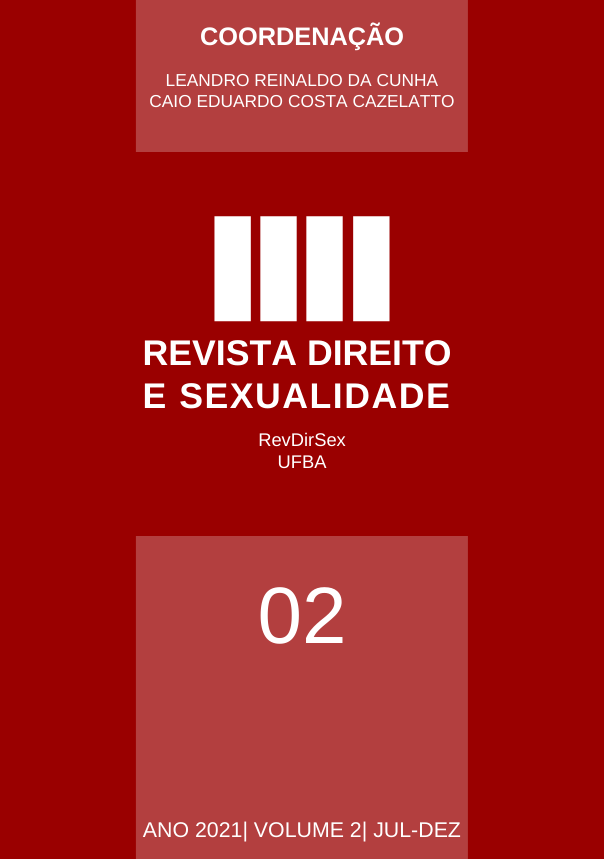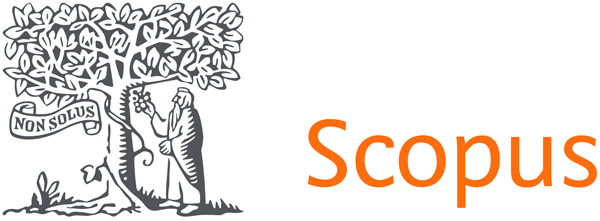DO DEVER DE ESPECIAL PROTEÇÃO DOS DADOS DE TRANSGÊNEROS
DOI:
https://doi.org/10.9771/revdirsex.v2i2.47273Keywords:
Data privacy; Transgenders; Sensitive data.Abstract
The current state of the art inserts us into an information society in which personal data of individuals are increasingly exposed and available to a large number of people, who can use such information for a wide variety of reasons and purposes. However, there are personal data that are considered sensitive because they have a high potential for exposing very personal information, thus holding a higher degree of legal protection. Occurs that in certain fields, public data, taken as ordinary, may reveal characters of harmful potential identical to those of the exposure of sensitive personal data when not treated properly, with a more accurate view of the subject being predominant in order to prevent some portions of the population are affected by improper data processing that can prove to be largely harmful, as can happen in the case of transgenders.
Downloads
References
ARAÚJO. Dhyego Câmara de. Heteronormatividade jurídica e as identidades LGBTI sob suspeita. Rev. Direito Práx., Rio de Janeiro, Vol. 9, N. 2, 2018, p. 640-662.
CUNHA, Leandro Reinaldo da. Identidade e redesignação de gênero: Aspectos da personalidade, da família e da responsabilidade civil. Rio de Janeiro: Lumen Juris, 2018, p. 308.
_________________ . Direito à indenização decorrente da ofensa à dignidade da pessoa humana do intersexual INTERSEXO – Aspectos: Jurídicos, Internacionais, Trabalhistas, Registrais, Médicos, Psicológicos, Sociais e Culturais, São Paulo: Revista dos Tribunais, 2018.
___________________. O posicionamento da corte interamericana de direitos humanos quanto à identidade de gênero, Revista dos Tribunais: RT, São Paulo, v. 107, n. 991, p. 227-244, mai. 2018.
___________________. A atual situação jurídica dos transgêneros no Brasil. Revista Interfaces Científicas, V.7, N.2, p. 145 – 158, 2019.
___________________. Direitos dos transgêneros sob a perspectiva europeia. Revista Debater a Europa, N. 19, 2018.
___________________. Breves considerações sobre a relação entre o direito de família e os direitos humanos, Direitos Humanos - Um enfoque multidisciplinar. São Paulo: Suprema Cultura, p. 85 – 98, 2009.
___________________. Identidade de gênero, dever de informar e responsabilidade civil. Revista IBERC, v. 2, n. 1, p. 1 - 17, 22 maio 2019.
___________________. Transgêneros: conquistas e perspectivas. In: Direitos na Sociedade da Informação V. São Paulo: Almedina, 2020.
CUNHA, Leandro Reinaldo da. RIOS, Vinícius Custódio. Mercado transgênero e a dignidade da pessoa humana sob a perspectiva do capitalismo humanista, Revista dos Tribunais: RT, São Paulo, v. 105, n. 972, p. 165-184, out. 2016.
DINIZ, Maria Helena. O estado atual do Biodireito. São Paulo: Saraiva, 2011.
JESUS, Jaqueline Gomes de. Orientações sobre a população transgênero: conceitos e termos. Brasília: Autor, 2012.
SANTOS E SANTOS, Leonardo Macêdo dos. Rainbow is the new black: Uma análise crítica da publicidade direcionada ao Consumidor lgbtqi+ à luz do caso Keukenhof Sushi Bistrô. Trabalho de Conclusão de Curso de graduação apresentado na Faculdade de Direito da UFBA, 2018.
SILVA JÚNIOR, Jonas Alves da. Uma explosão de cores: Sexo, sexualidade, gênero e diversidade, Minorias sexuais: direitos e preconceitos. Brasília: Consulex, 2012.
SZANIAWSKI, Elimar. Limites e possibilidades do direito de redesignação do estado sexual. São Paulo, RT, 1998, p. 44.
Downloads
Published
How to Cite
Issue
Section
License
Copyright (c) 2021 ambos

This work is licensed under a Creative Commons Attribution-NonCommercial-NoDerivatives 4.0 International License.
- This Journal reserves the right to direct normative, spelling and grammatical alterations in original works, with the intention of maintaining the standard worship of the language, respecting the authors' style.
- The exclusive opinions by the authors are their sole responsibility.
- The licensing rights used by the journal are the Creative Commons Attribution 4.0 International License.
- Copyright belongs exclusively to the authors. Sharing (copying and distributing the material in any medium or format) and adaptation (remixing, transforming and re-adapting the original work for all purposes, including commercial) are permitted, provided that due credit is given for the initial publication in this journal.
- Authors are permitted and encouraged to publish and distribute their work online after publication, as this can increase the impact and citation of the published work (See The Effect of Open Access).












